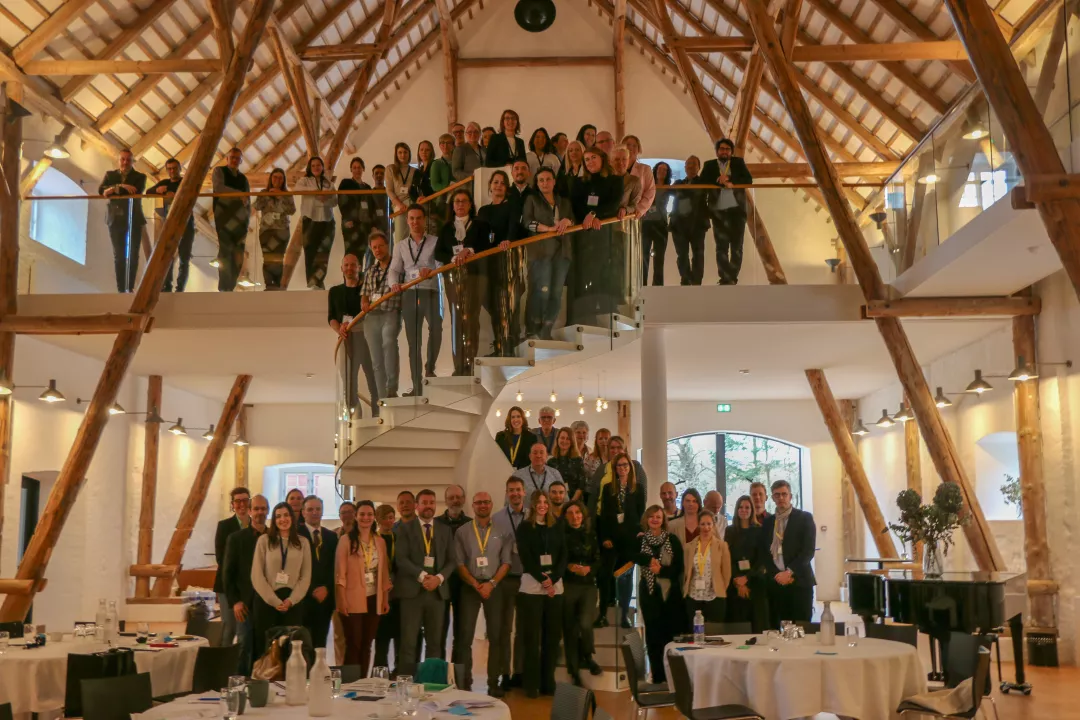New Good Practice stories published
- CAP Implementation
- Agricultural Productivity
- AKIS
- CAP Strategic Plans
- Climate and Climate Change
- Digitalisation
- Communication
- Economic impacts
- Education
- Environment
- Food Supply Chain
- Forestry
- Fostering Knowledge & Innovation
- Jobs, Growth and Equality in Rural Areas
- LEADER
- Long-term Vision for Rural Areas
- Networking
- Rural Development
- Social Inclusion
- Tourism
The website's latest Good Practice stories include an agroecology project, new kindergarten facilities, climate-friendly peat management and a novel approach to food tourism in Austria.

The EU CAP Network publishes a regular supply of Good Practice stories on the website and a short review of some of the latest stories is summarised below.
In Belgium, the CAP has supported local farmers' agroecological interests in water management. Integrated approaches were co-funded in this ‘River, Farmer, Soil’ project, which helped guide 23 farmers to reduce the risk of flooding, improve water quality and increase the climate resilience of agricultural businesses. This included the installation of weirs in ditches, the integration of draught-resistant crops in the rotation and the application of wood chips to increase the organic carbon content of the soil. In addition, training and educational demonstrations encouraged the wider uptake of these measures.
Education is the focus of a Croatian CAP-funded kindergarten which provides important social infrastructure, improves the service provision for local families, and enhances the municipality’s overall socio-economic standing. The construction of this new kindergarten also enhances the quality of life and employment opportunities for residents while increasing the attractiveness of the village to encourage growth and socio-economic sustainability. By providing much needed additional childcare capacities, the successful project generated a substantial number of jobs (especially for women), positively impacting the economic and social development of the area. The new childcare facilities also helped improve equal opportunity for each young parent in the area by enabling them to gain better access to the labour market.
A recently published Good Practice story about peatland management in Finland highlights how 628 forest owners and professionals received training on climate friendly forestry methods for sustaining the resilience of peat reserves for carbon sink purposes. The CAP co-finance has resulted in better management of drained peatland forests in Pirkanmaa. This project helped participants to gain better insights into climate-friendlier choices for managing peatland forests. New knowledge and information were disseminated through lectures, study trips and practical demonstrations.
An organic abattoir in Austria created new jobs with help from CAP investment funds for a modernisation project, which included a visitor facility aimed at raising awareness about welfare standards in abattoirs. Transparency and animal welfare have always been top priorities of this family business and when a new slaughterhouse was needed to keep up with demand, the idea of implementing the gentlest approach possible to slaughtering was prioritised. A further ambition was to better demonstrate the high animal welfare standards of the company to its customers, suppliers and visitors. In 2019, the new so-called ‘glass’ section of the slaughterhouse was opened. This covers pre-slaughter areas providing an education and tourism service where visitors can see for themselves that high animal welfare standards are always maintained by the company.
